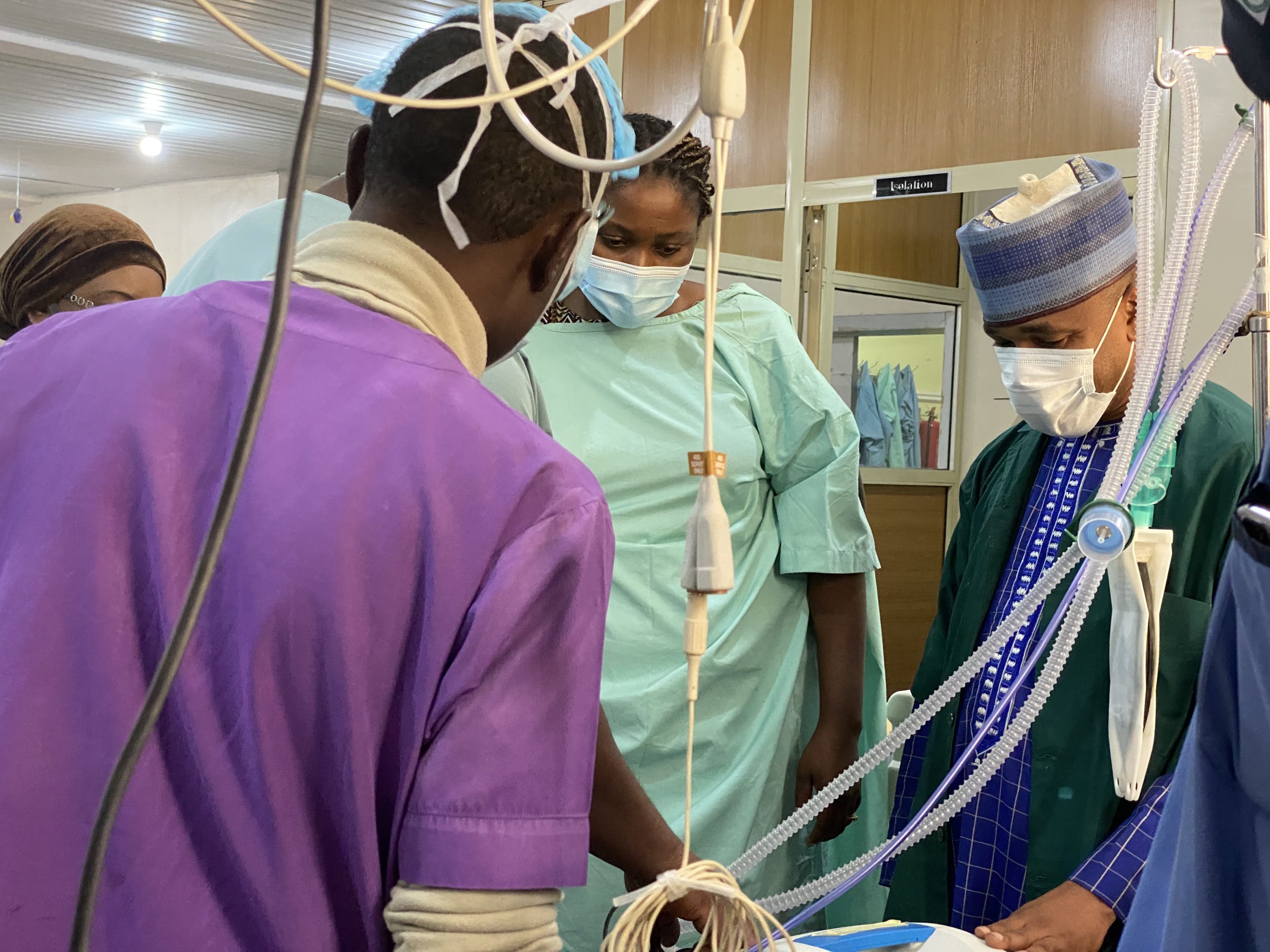Supportive Supervisory Visit
On the 11th of August 2020, The United States Agency for International Development (USAID), in collaboration with The Presidential Task Force (PTF) donated 200 leading-edge ventilators by Medtronic, to support the fight against COVID-19 pandemic in Nigeria. The Federal Ministry of Health (FMOH), with technical support by FHI360 distributed and supervised the installation of the ventilators to 88 facilities across 36 states of the federation. Following the installation of 200 ventilators by the Federal Ministry of Health (FMOH) and FHI360; clinical experts, FMOH, and the FHI360 ventilator team conducted supportive supervisory visit to 46 facilities across 14 states in the month of February and March 2021. The focus of the exercise was to provide clinical mentoring, analyze ventilator’s impact on COVID-19 case management as well as identify technical gaps with management of COVID-19 cases.
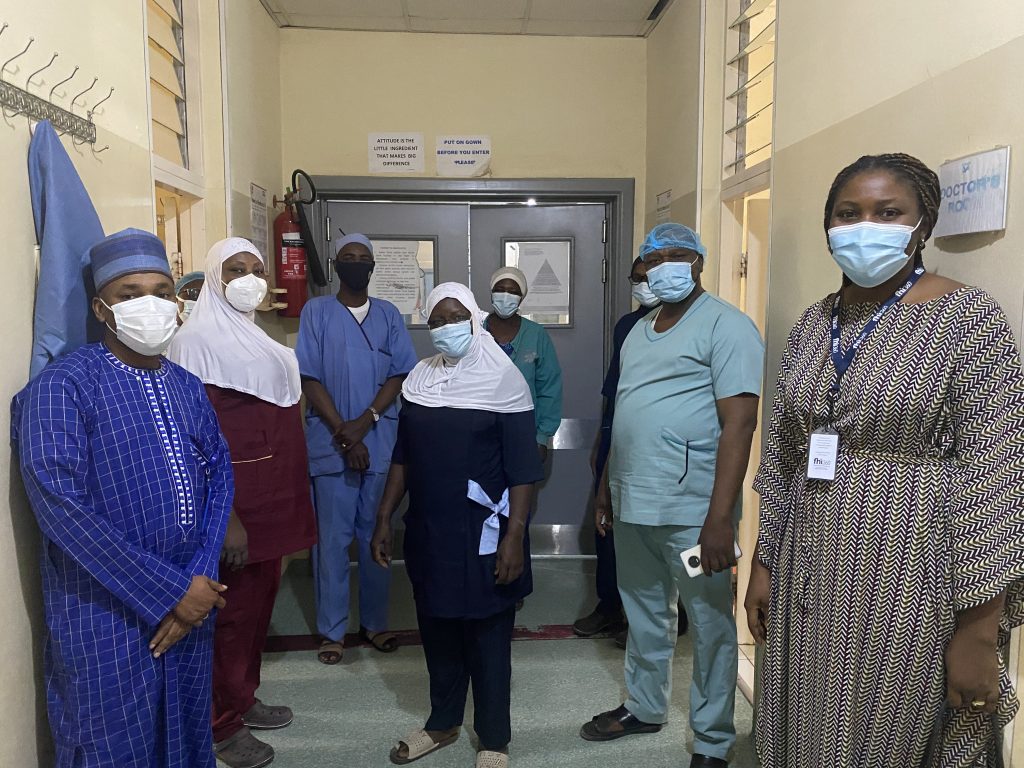
Clinical mentoring
Clinical mentoring is a critical component of training, as it provides a bridge between didactic training and independent clinical practice. Clinical mentoring enables health care workers (HCW) to practice new skills in clinical settings with the support and guidance of a more specialized and experienced clinician.
Experienced anesthetics were carefully selected from six tertiary hospitals, one from each zone. These clinical experts provided on site mentoring to their peers in the ICU using the peer-to-peer mentoring approach. They re-trained frontline staff in the ICU on steps in managing COVID-19 patients. Immediately after the training, a Q &A session held where nurses and doctors asked burning questions on when to intubate and prognosis of intubating COVID-19 patients. These trained anesthetists also had the opportunity to learn from their pairs on how they have been able to save lives through invasive and non-invasive care.
Ventilators impact on COVID-19 case management
The management and staff of all facilities visited attested to the fact that the donated ventilators had improved case management of COVID -19, as well as other pediatric and adult disease conditions requiring intensive care. They now have increased capacity to accept and manage COVID-19 cases compared to before the donation. They were all satisfied with the performance of the ventilators because it is user friendly, has a long battery life, portable and has other non-invasive function such as CPAP mode.
Technical needs with management of COVID-19 cases
The supervisory team identified technical gaps focusing on capacity building needs on case management and forecasting for consumables. Since COVID 19 case management is an evolving science, frontline staff identified the need for constant re-orientation and refresher programmes on best protocols as they evolve especially conservative modes of case management. e.g. use of CPAP etc.
To make adequate budgetary provision which ensures sustainability in terms of consumables, accessories, spare parts; staff’s capacity has to be built on forecasting for consumables and preventive maintenance of the ventilator.
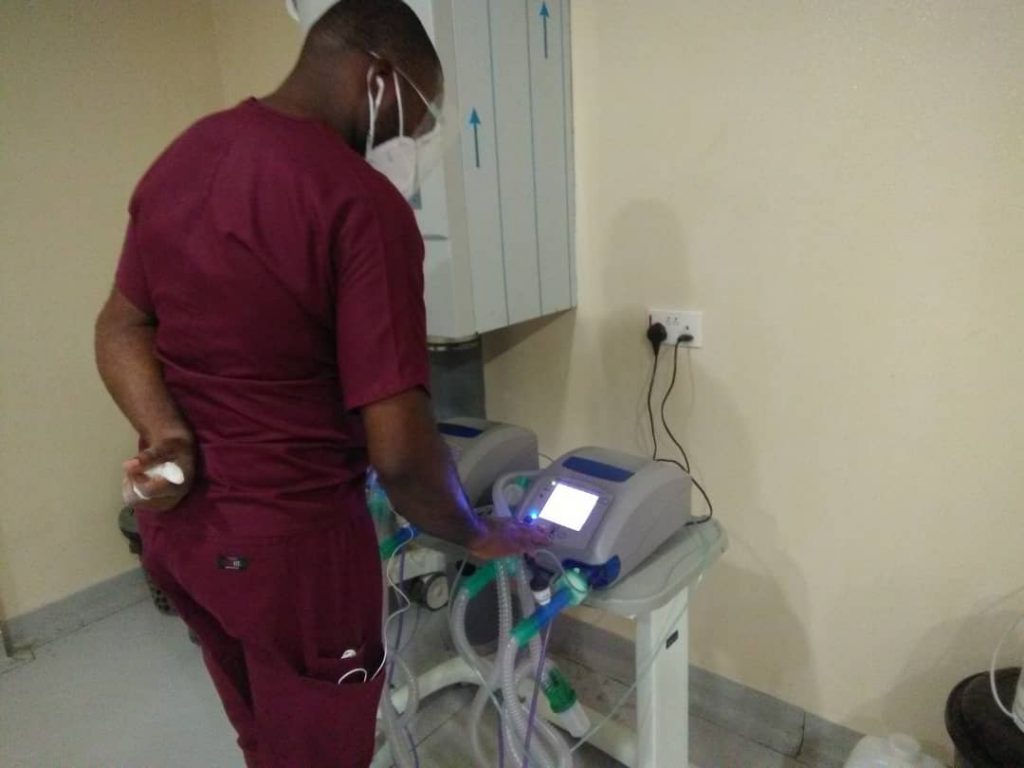
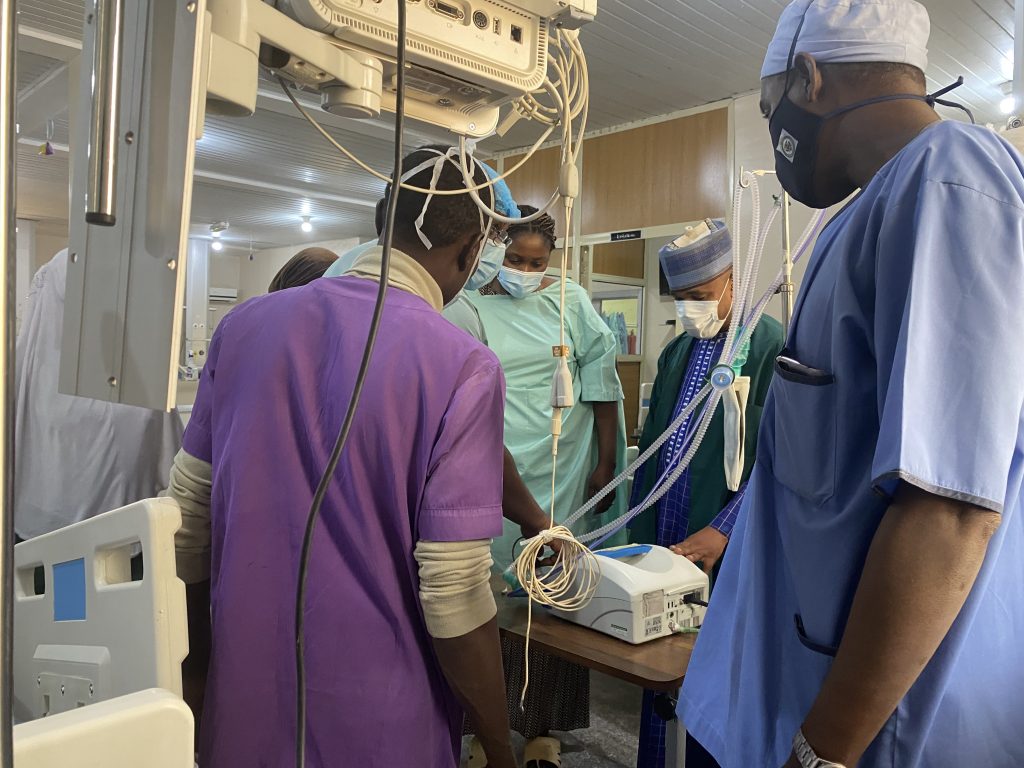
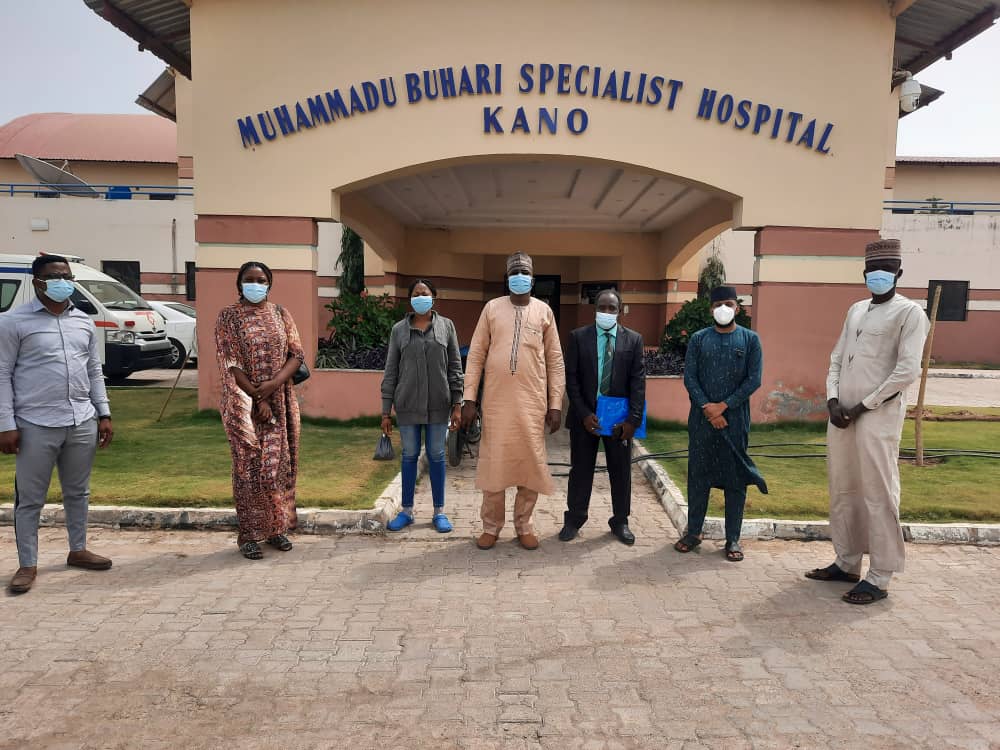
Story from one hospital
Before the donations, our hospital had two Drager Ventilators which is very expensive. We received 3 Medtronic ventilators in October 2020 – 1 was placed in the ICU and 2 in the isolation centre. It was such a relief when it came. We can now manage up to 20 COVID-19. The Medtronic ventilator is portable, handy, and mobile which is very good for transferring patients.
Prof Kunle Ajayi, MD Federal Teaching Hospital, Ido Ekiti


